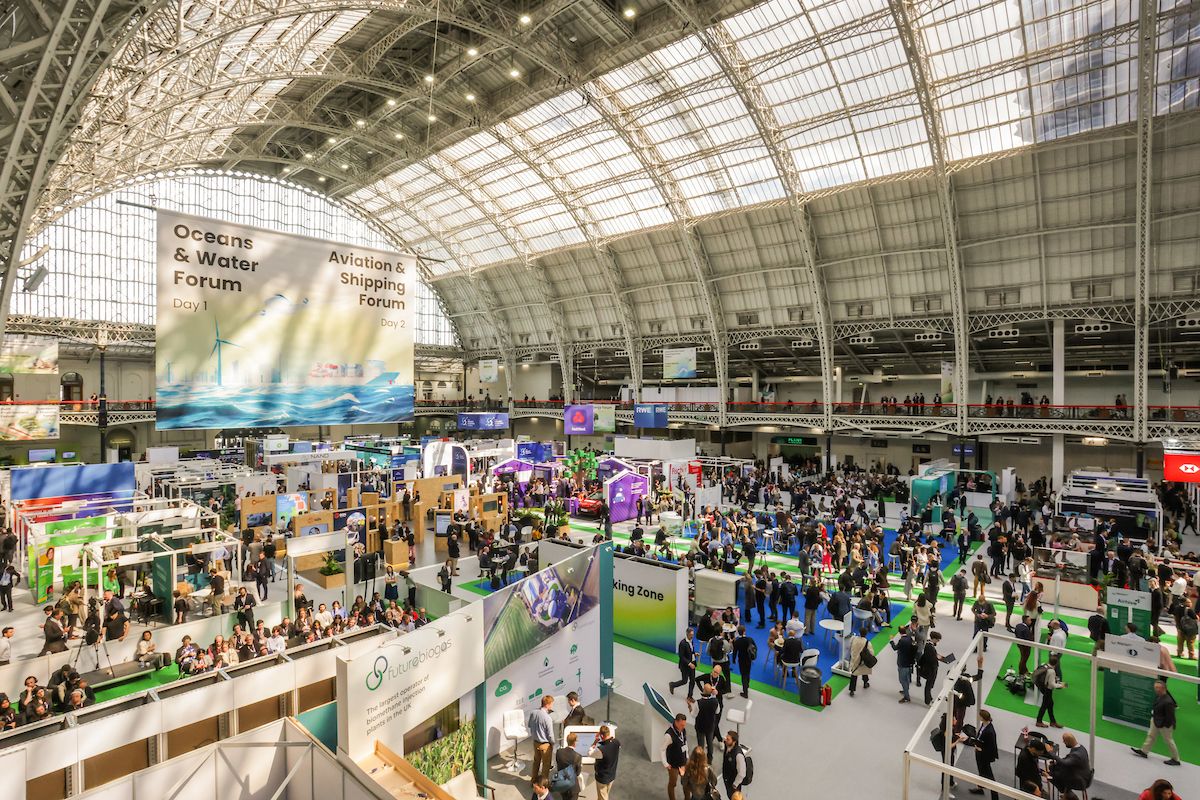These Innovation Zero World Exhibitors are Helping to Climate-Proof the UK
Last month, famous tech podcaster, Harry Stebbings, told Sifted: “The world thinks that we can’t build great companies [in Europe] anymore.”
He disagrees; he thinks we can. And he’s launched Project Europe to prove it.
That new €10m fund, run by Kitty Mayo, promises to give this continent’s most promising young founders access to both capital and support from Europe’s top entrepreneurs.
Here at Innovation Zero, we just hope those founders will read the UK Government’s new Climate Adaptation Research and Innovation Framework, before considering what to build. That framework, published earlier this month, lays out over 200 “research and innovation challenges” that desperately need solving if we’re to reduce the UK’s vulnerability to the effects of climate change.
It stresses we need answers to questions like:
-
How should water use be prioritised during future droughts?
-
How could sea level rise affect our roads and railways?
-
How can we best protect this country’s world-famous heritage sites?
…and, it stresses that climate adaptation presents business opportunities, “especially to first-movers.”
So, with just five days left to go until Innovation Zero World 2025, it got us thinking: “Which of this year’s exhibitors could become the sort of success stories Project Europe hopes for, all while helping to climate-proof the UK?”
Many fit the bill, but four in particular stood out to us.
On the government’s mind: How can we make energy assets less vulnerable to extreme weather?
According to a recent study in the journal Energy Research & Social Science, as summers have gotten warmer, the use of air conditioning in UK homes has increased sevenfold, “from 3% in 2011 to 20% during the last decade.”
It’s a perfectly understandable trend, but one that doesn’t come without risk. If adoption continues to increase, the study warns, power-hungry air conditioning units could place a “significant [additional] burden” on our power grid. In a worst-case scenario, that could mean frequent power cuts and all the disruption they bring to firms and households. (It’s a problem India already contends with.)
But, those power cuts aren’t guaranteed: Two of our exhibitors could help to reduce their risk of occurring.
Data analytics startup Enverse (pod X108) is – among other things – using “data-driven machine learning models” to optimise industrial HVAC systems and reduce the amount of power they consume, potentially – we would argue – reducing the risk of grid outages. Last year, the startup was named one of TechRound’s top 60 sustainability companies.
Nottingham-based Cheesecake Energy (stand H27) is re-purposing components from truck engines to produce eTankers. According to the company’s website, those containerised batteries can supply stored, renewable power for up to 20 hours – a great contingency for companies that can’t afford to be affected by blackouts. Last year, Amazon announced plans to use Cheesecake Energy’s technology in selected fulfilment centres across Europe.
Also wanted: “Climate-resilient agricultural production.”
It’s not just our power grid that could be affected by a changing climate.
Last September, a study by the UK Centre for Ecology & Hydrology (stand B6) found that “extreme soil moisture droughts in the UK… are expected to occur more frequently under climate change.” In the recent past, it said, “such severe droughts occurred around once every 16 years.” But, in this decade and the 2030s, “they could occur as frequently as once every five or six years.” When soil moisture levels are critically low, crops struggle to survive, threatening food security.
It’s worrying. But, two of our exhibitors this year could help to protect the UK’s food supply.
Berlin-based Klim (stand H83) says that regenerative agriculture practices (like cover cropping and no-tilling) can increase the water storage capacity of soil – more water in the soil means crops have a higher chance of surviving during hot periods. The startup is compensating farmers who adopt regenerative practices, with money it earns from selling carbon credits to companies (regenerative farming can sequester carbon.) To date, over 3,500 farmers have signed up to Klim, which has implemented projects in six countries (including the UK.)
Arborea (stand F25), on the other hand, wants to take soil out of the food-growing equation entirely. The Anglo-Portuguese startup has developed a method of producing food without need for fertile land or agricultural feedstocks. Instead, microscopic plants are grown using sunlight as an unlimited food source. High-quality proteins and ingredients are then extracted from those plants, and sold in powder form, for use in products by the food and drink industry. Last year, the company raised a €5 million funding round to help develop its first commercial-scale facility.

Of course, it’s too late for Arborea, Klim, Cheesecake Energy and Enverse to raise investment from Project Europe. But could we see a Project Europe-backed startup, helping to climate-proof the UK, exhibit at Innovation Zero next year? We have our fingers crossed!
(If you’re an innovator looking for your next problem to solve, why not attend our conference next week for some inspiration? You can book your ticket here.)


